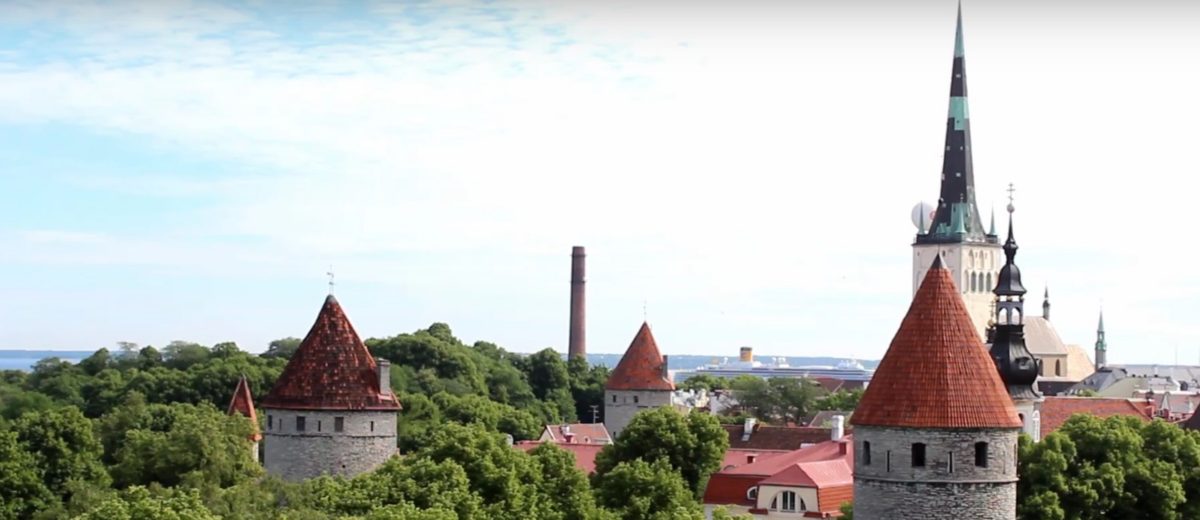Cedric and Elina are a young couple with a dream. They want to encourage young European believers together to dream with them about the future of their continent. In a time of growing nationalism, xenophobia and international mistrust, they want to promote broader understanding and reconciliation.
As Schuman Associates, they are organising this year’s European Christian Youth Parliament in Tallinn, November 3-6, together with Mission-Net and PEFY (Pentecostal European Forum for Youth ministries).
Elina and Cedric themselves have a cross-cultural and international marriage. She is Finnish, but grew up between Finland and England, and while raised in Belgium, he is Italian as reflected in their family name, Placentino. Recently they moved from Belgium with their two young daughters to Elina’s homeland which, as a teenager, she represented at a secular European youth parliament. This planted the idea in her mind of bringing Christian youth together to apply biblical values and perspectives to issues facing Europeans today, such as economics, migration, creation care and international relations.
Drawing on Estonia’s crossroad heritage, the Youth Parliament will explore the biblical value of reconciliation related to the realities of today’s Europe under the theme, Bridging the gap. In plenaries and committee meetings, the young delegates will develop ideas, formulate proposals and debate with peers, supported by mentors from Finland, Sweden, Latvia, Britain and the Netherlands. In the closing general assembly, the committees will present their resolutions.
Crossroads
The Placentinos have chosen Tallinn as venue for this event, the capital of Estonia, which has the presidency of the Council of Europe (see below) this current half-year. Estonia, formerly part of the Soviet Union and situated on the north-eastern fringe of Europe, has historically been a natural crossroad in several ways, says Cedric. Geographically, politically, linguistically and theologically, Estonia has grappled with the reality of being a country on the crossroads. It has been at the border of kingdoms and empires such as Sweden, Russia, Lithuania and the Holy Roman Empire. Today Estonia is still a meeting point of Russia and the West.
A picturesque walled city with fairy-tale towers, Tallinn is one of the oldest capital cities of Northern Europe. The Old Town is one of the best preserved medieval cities in Europe and is listed as a UNESCO World Heritage Site. In 1285, the city, then known as Reval, became the northern-most member of the Hanseatic League, a mercantile and military alliance of German-dominated cities in Northern Europe. The Danes sold Reval to the Teutonic Knights in 1346. Medieval Reval enjoyed a strategic position at the crossroads of trade between Western and Northern Europe and Russia.
After the so-called Singing Revolution in 1991, when Soviet rule was peacefully overthrown, Tallinn quickly transitioned into a modern European capital. Today, the city is often dubbed as the Silicon Valley of Europe, having the highest number of startups per person in Europe and being the birthplace of many international companies including Skype.
Treasonable
Most of the Youth Parliament gatherings will take place in the Methodist Church building in Tallinn, with a special plenary session being held in the Riigikogu, the Estonian Parliament situated on the Toompea (Domberg), for many centuries the seat of the central authority. The four-day event will finish on Sunday November 6th, designated as Europe Prayer Sunday, with a service in the city’s main Pentecostal church.
As Schuman Associates, Cedric and Elina are part of a network of part- and full-time volunteers promoting the aims of the Schuman Centre for European Studies, currently in Finland, Latvia, Romania, Denmark, the Netherlands and Belgium. Named after Robert Schuman, French foreign minister after World War Two and founding father of what has become the European Union, the centre aims to encourage his vision of Europe as a community of peoples deeply rooted in Christian values.
Forgiveness and reconciliation were essential to recover peace and cooperation in Europe seven decades ago, beginning with France and Germany. As early as 1942, while under house arrest by the Nazis, Schuman had written that his fellow Frenchmen would have to learn to forgive and love the Germans in order to rebuild Europe after the cessation of hostilities–an idea considered treasonable by some of his contemporaries. The Youth Parliament will stress how these biblical values are imperative for a peaceful and cooperative Europe today.
[The Council of Europe, CoE (not to be confused with the European Council or Council of the European Union) promotes human rights, democracy and the rule of law in Europe. Founded in 1949, it has 47 member states, covers approximately 820 million people and has headquarters in Strasbourg. The European Court of Human Rights–the best known body of the Council of Europe– enforces the European Convention on Human Rights.]
Till next week,



